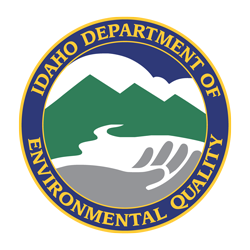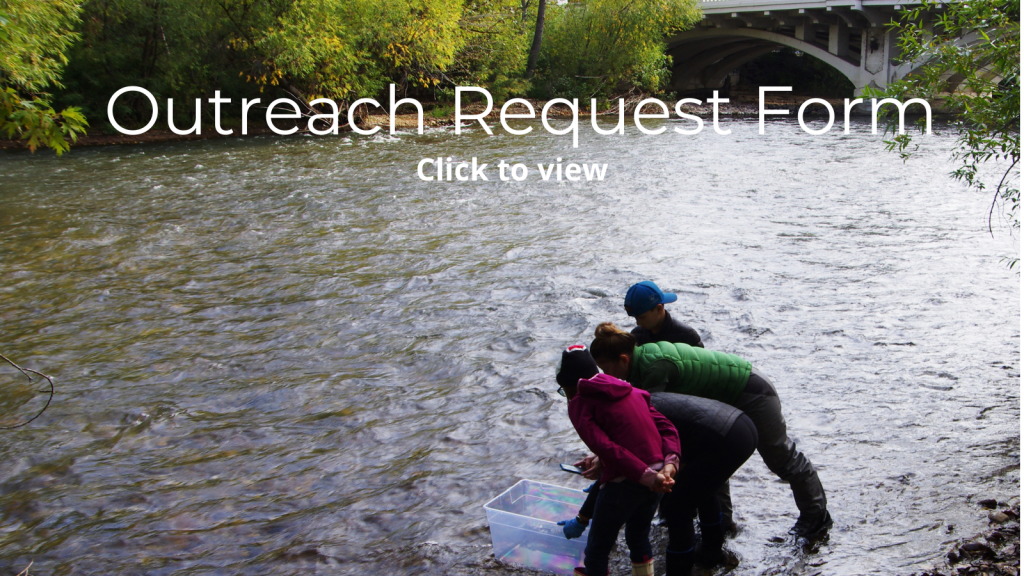Teaching about the environment can be fun for both educators and students. We developed lesson plans for various grade levels on a wide range of air quality, water quality, and waste management topics to assist teachers in providing environmental education.
Our staff are also available to conduct outreach events upon request. Learn about our classroom and outdoor activities on our outreach request form.
- Energy Conservation Tips for Schools (Fact Sheet)
- Hey, We Need That! (Lesson Plan: K – 5th grades)
Students learn that we need sunlight and clean air, water, and land to live and observe what happens when plants don’t have these necessities. - Playing Hide and Seek…With Pollution! (Lesson Plan: Pre-K – 3rd grades)
Students explore the concept of pollution through an activity and a coloring sheet. - Pollution Prevention (P2) Bingo (Lesson Plan: 3rd – 12th grades)
Play “Bingo!” to reinforce good environmental practices. Good to supplement other activities.
- lClean Air Zone: Putting it to the Test (Lesson Plan: 7th – 12th grades)
Students bring the anti-idling Clean Air Zone program into schools and study its effects. - Earth Cleaning: Dusting the Air (Lesson Plan: 4th – 8th grades)
Students make “dust catchers” to collect particulate pollution around their school. - Inversion in a Cup (Lesson Plan: 4th – 8th grades)
Students create a temperature inversion and observe how cold air becomes trapped and how pollutants can become trapped with that cold air. - Smoke Detectives (Lesson Plan: 4th – 7th grades)
Students observe air quality conditions in their town to investigate the link between air quality and wood smoke. - When a Car Coughs…Taking a Close Look at Vehicle Exhaust (Lesson Plan: 7th – 9th grades)
Students capture particulate pollution from vehicle exhaust and compare results among vehicles.
- Incredible, Edible Aquifer (Lesson Plan: 4th – 8th grades)
Students build edible aquifers and learn about aquifers and ground water. - Pollution and Healthy Environment: Like Oil and Water (Lesson Plan: 4th – 8th grades)
Students pollute water to learn how pollutants mix with water in the environment. - The Rain Takes Pollution Mainly Down the Drain (Lesson Plan: 4th – 7th grades)
Students build storm water “mazes” and observe how storm water transports pollution from our streets to ground and surface water. - Source Water Discovery (Lesson Plan: 8th – 12th grades)
Students learn about source water and related concepts by using DEQ’s Source Water Assessment Online tool. - Where’s Your Watershed? (Lesson Plan: 4th – 7th grades)
Students explore local watersheds using maps and create their own watersheds to learn how they function.
This accordion will not appear on the screen
Elementary School Curriculum
An understanding of the basic concepts of groundwater is key to understanding how the RPA works. The study of groundwater is called hydrogeology. Hydrogeology investigates how water occurs and moves through the earth. The elementary school aquifer education curriculum contains a number of lesson plans and animations.
The animations are also available on CD from DEQ’s RPA coordinator. Also included is a suggested materials list.
At the end of each lesson plan is a certificate of achievement that the teacher may sign and award to the student after he/she has successfully completed the lesson. After all lessons have been completed, a diploma designating the student as an “Apprentice Hydrogeologist” may be awarded. Download the diploma below; contact DEQ’s RPA hydrogeologist to have the diploma signed by DEQ staff.
Middle School Curriculum
| Lesson Name | Lesson Plan | Animation Format |
|---|---|---|
| #1 Hydrologic Cycle | Where does water come from, and where does it go? | Video Link |
| #2 Groundwater | How does water under the earth’s surface move? | Video Link |
| #3 Drinking Water | Where does my drinking water come from? | Video Link |
| #4 Groundwater Contamination | What is groundwater contamination? | Video Link |
| #5 Aquifer Simulation Model | What will the groundwater do? |
High School Curriculum
| Lesson Name | Lesson Plan |
|---|---|
| #1 Darcy’s Law | Darcy’s Law – How does water move through an aquifer? A permeameter is needed for this exercise and is available for loan to teachers at the DEQ Coeur d’Alene Regional Office. |
| #2 Groundwater Contours | Groundwater Contours – How do we determine groundwater flow direction and gradient? |
| #3 Contaminants | What is groundwater contamination? Group A) (Group B) – Contaminant Fate and Transport Spreadsheet |
| #4 Groundwater | What does my water have in it? – If your school is within the Kootenai County Aquifer Protection District boundaries (over the RPA or contributing watersheds), the materials and analytical costs may be provided at no cost. Contact DEQ’s RPA hydrogeologist for additional information. |
Take a Quiz
Test your knowledge about the Rathdrum Prairie Aquifer.
Note to Teachers
The lesson plans and animations are provided to help teachers with aquifer education. Training for teachers in using the lesson plans and aquifer simulation model is available. If your school is located within the Kootenai County Aquifer Protection District fee boundaries, you may be eligible to receive the materials and aquifer simulation model at no charge. Contact DEQ’s RPA hydrogeologist for additional information.
Our Lewiston-Clarkston Aquifer Atlas is a resource to learn where drinking water comes from, where it goes, and how to protect it. Discover how water has been used historically in our area. Using the interactive educational features of the atlas, tour the aquifer, calculate your water footprint, print out worksheets for active learning experiences, and watch videos on ancient floods and groundwater.
- Conduct a Mercury Audit in Your School (Lesson Plan: 8th – 12th grades)
Students conduct an audit to determine what mercury-containing items exist in their school. - Doing the “Three R” Wrap (Lesson Plan: 4th – 7th grades)
Students wrap gifts and learn how to eliminate, reduce, reuse, and recycle waste. - Making a Mini-Landfill (Lesson Plan: 4th – 7th grades)
Students build landfills, learn about environmental issues surrounding landfills, and discuss actions they can take to keep waste out of landfills. - Pollution Prevention in the Laboratory (Fact Sheet)
- Recycling Relay (Lesson Plan: Pre-K – 3rd grades)
Students learn about trash and landfills, and how to reuse and recycle to produce less trash. - Something Old, Something New, Something Borrowed, Something Reused? (Lesson Plan: 4th – 12th grades)
Through interviews with older Americans and/or individuals from different cultural backgrounds, students gain an understanding of how the concepts of reduce, reuse, and recycle are neither new nor specific to American culture.


